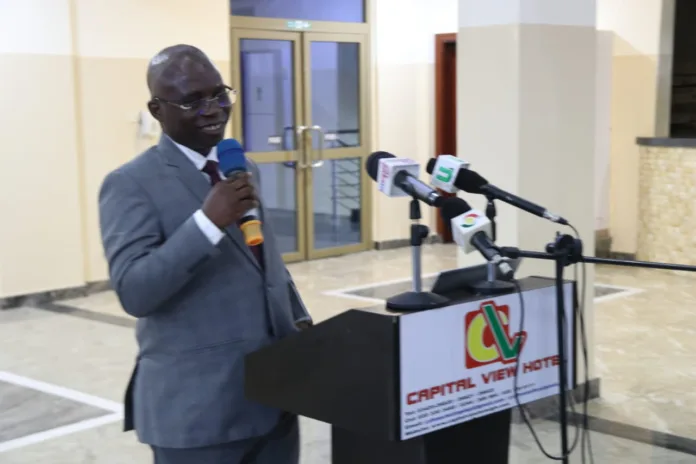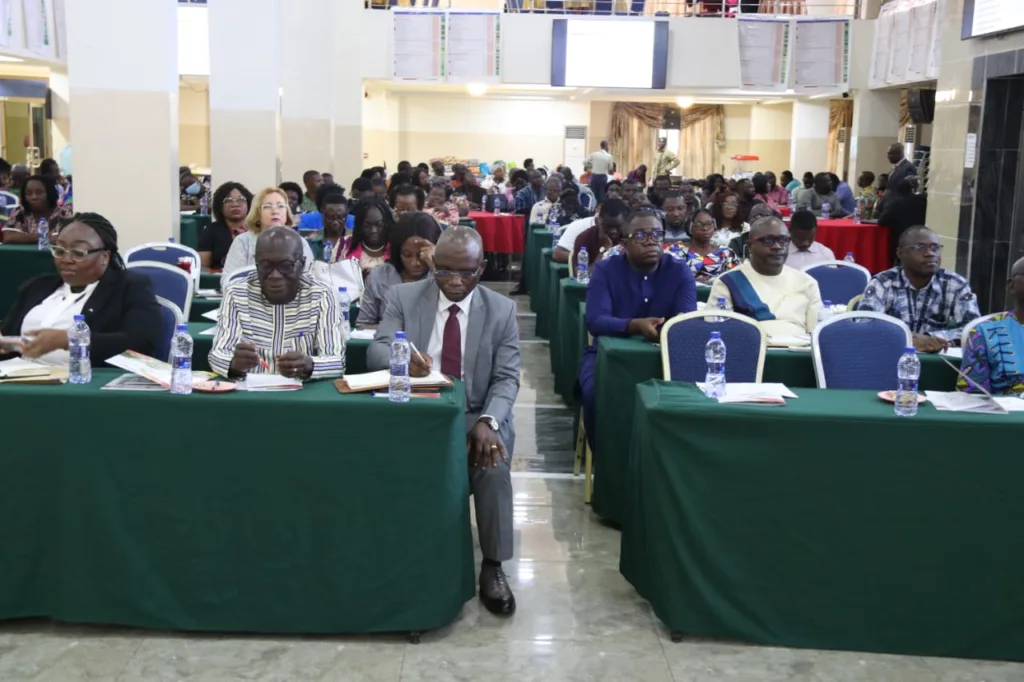
Ghana is in a race against time to achieve Universal Health Coverage (UHC) by 2030, a global target that aims to ensure all individuals have access to quality health services without financial hardship.
However, with just six years remaining, the country’s UHC Service Coverage Index stands at around 50%, forecasting significant hurdles ahead.
But the Director General of the Ghana Health Service, Dr. Patrick Kuma Aboagye remains optimistic, citing improvements in key health indicators such as hospital admission rate, the percentage of ANC clients making 4th visit, the percentage of malaria cases tested, family planning acceptor rate and percentage of babies breastfeeding after one hour
He emphasizes the need for collaboration with stakeholders and international partners to bolster these gains and reach UHC goals.
“Hospital admission rate 63.2 in 2021 and 65.6 in 2023.
Percentage of ANC clients making 4th visit-74% in 2020 to 87.1% in 2023 – Percentage of malaria cases tested-93.8% in 2019 to 98,3% in 2023.Family planning acceptor rate -27.1% in 2020 to 35.8 in 2023.Percentage of babies breastfeeding after one hour of delivery 92% in 2020 to 94.9% in 2023″ Mrs. Araba Kudiabor, the Director for the Supplies Stores and Drugs Management on behalf of the Director General.

He said this in Koforidua during the 2023 Annual Review Meeting by the Eastern Regional Health Directorate on the theme “Strengthening Primary Healthcare Through Network of Practice to Achieve Universal Health Care Coverage”
He added “the stillbirth rate and institutional neonatal mortality rate have also been once a declining trend. The stillbirth rate reduced from 12.6 per 1,000 total births in 2019 to 10.2 per 1,000 total births in 2023. respectively. Institutional Neonatal mortality rate per 100,000 live births which stood at 7.8 per 100,000 live births in 2019 declined considerably to 5.1 in 2023”
Meanwhile, OPD per capita, institutional infant mortality, institutional under-five mortality, percentage of skilled delivery, institutional maternal mortality ratio, and all immunization coverage have been quite stagnant.
“We shall do more intentionally this year to see a shift in the right direction. While we are just six years away from achieving Universal Health Coverage by 2030, our UHC Service Coverage Index, as a country, is hovering around 50%. This clearly is not good enough. Can we achieve UHC over the remaining six years? This is a challenge I throw to you all. What can we do differently to accelerate that journey? What must we do away with to catalyze that process to achieve UHC?” Dr.Patrick Kuma Aboagye stated.
One notable obstacle is the mass migration of healthcare workers to Europe, posing a threat to Ghana’s healthcare system.
But the Director General of GHS says efforts by the Ministry of Health to recruit more staff and improve conditions in underserved areas are underway to fill the gaps.
Eastern Regional Director of Ghana Health Service Dr.Winfred Ofosu said although the attrition did not affect its target of Doctor, Nurse, and midwife-to-patient ratio in the region it affected the number of experienced staff therein.
He said research has been commissioned to make recommendations on ways to retain healthcare workers in rural areas in the region
In the Eastern Region, despite improvements in certain health metrics compared to the previous year, challenges persist.
While maternal mortality and stillbirth rates decreased, overall mortality rates increased slightly.
“Our performance in 2023 was generally better than in 2022. We sadly faltered in some of the indicators we achieved in 2022 but made gains in other indicators we could not achieve in 2022. We reduced the maternal mortality ratio from 120 deaths in 2022 to 102 deaths per 100,000 live births in 2023. Similarly, we reduced the stillbirth rate from 8 deaths in 2022 to 6.2 deaths per 1000 live births in 2023. Sadly, we increased all caused mortality from 26.9% in 2022 to 27.9% in 2023,” the Regional Health Director said.
Moreover, the functionality of Community-based Health Planning and Services (CHPS) compounds and zone facilities remains a concern, with only 50% reported as operational in the region.
Dr. Winfred Ofosu highlights the need for infrastructure improvements and effective implementation of a network of practice to strengthen the primary healthcare system to facilitate the achievement of most indicators for Universal Health Coverage.
Source: Ghana/Starrfm.com.gh/103.5FM/Kojo Ansah




